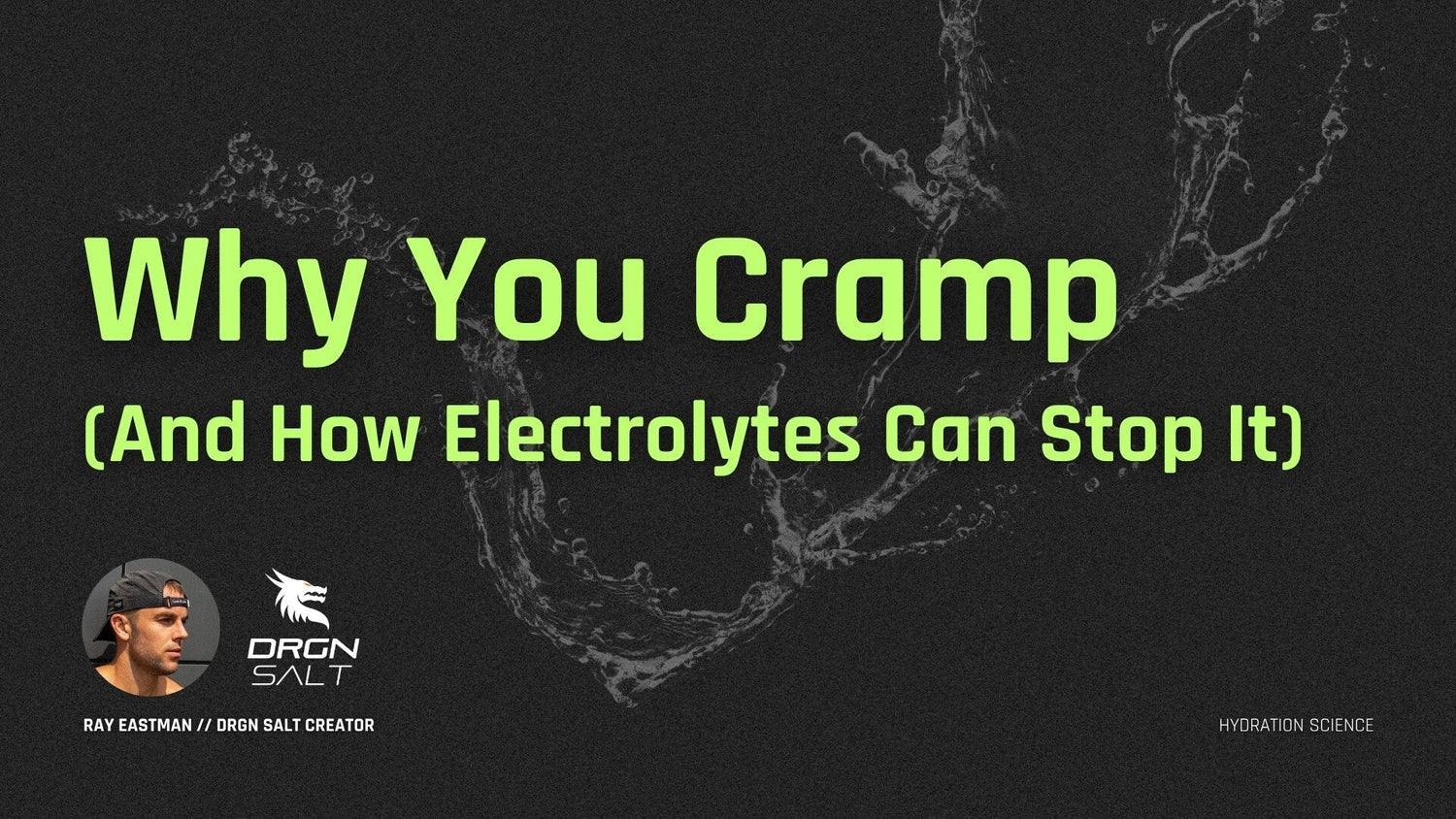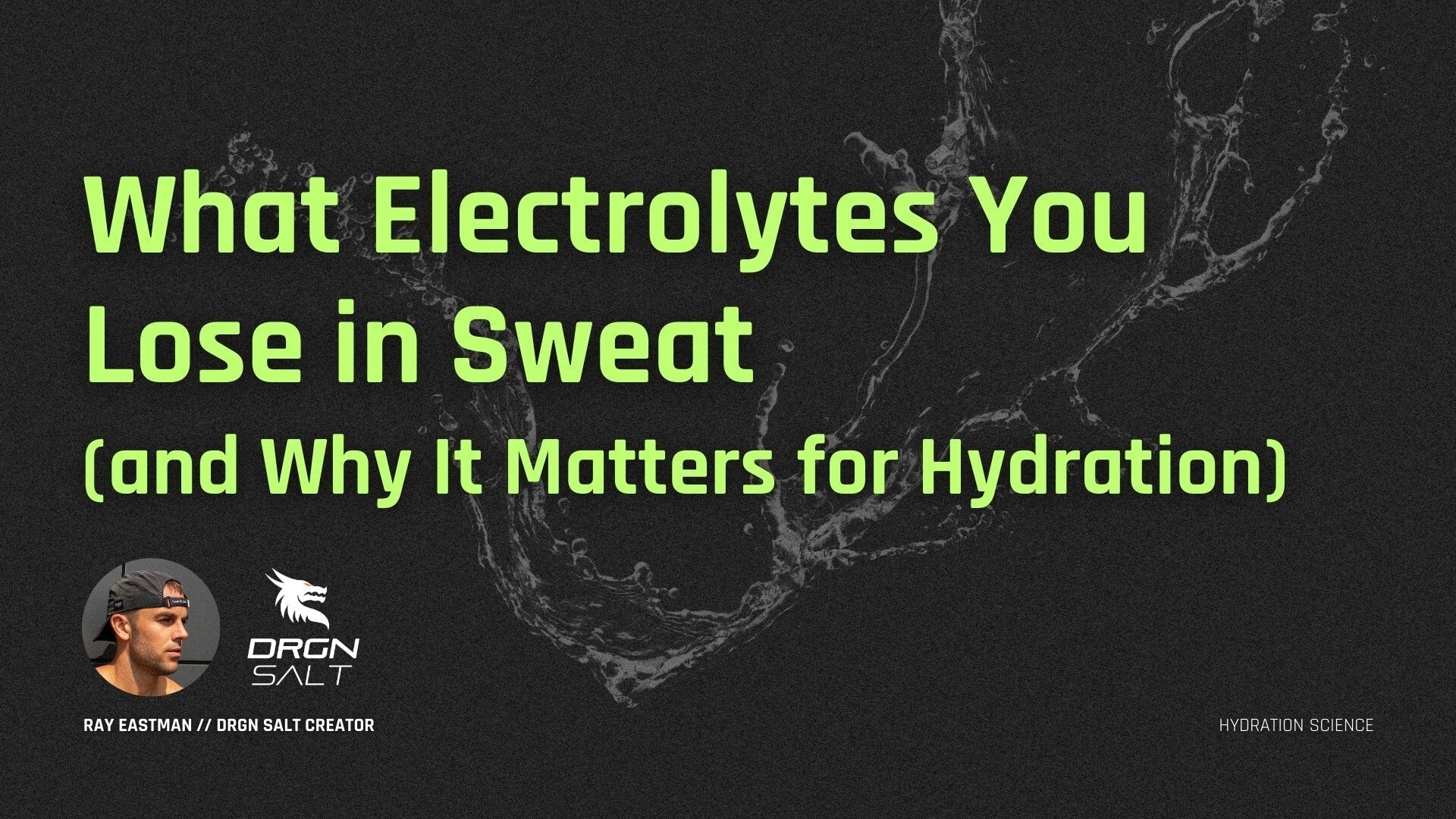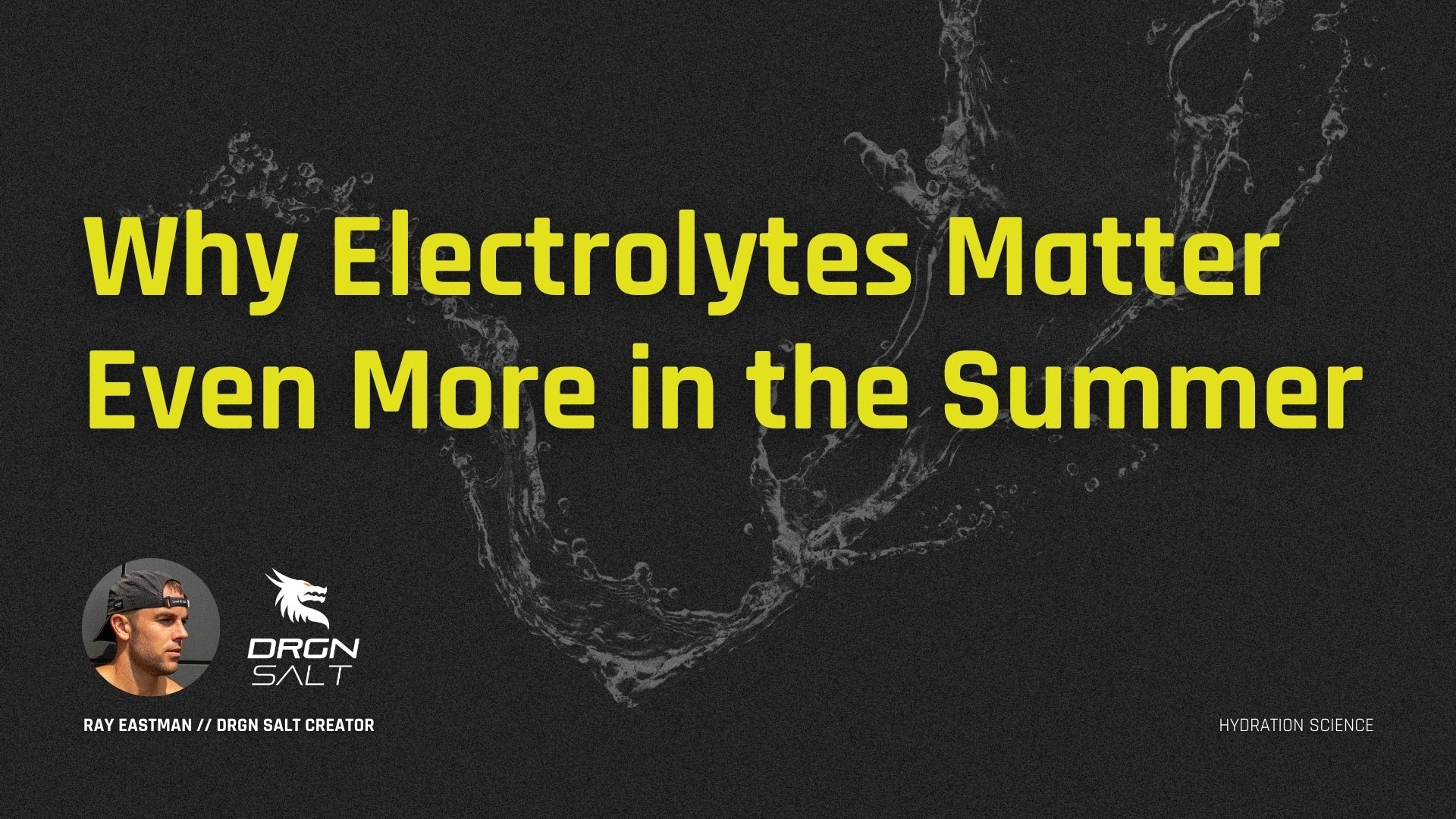Why You Cramp (And How Electrolytes Can Stop It)
Muscle cramps can strike at the worst times (during a race, mid-set, or even hours after a workout). While many people chalk it up to fatigue or not stretching enough, the real culprit often comes down to one thing: electrolyte imbalance.
Let’s break down what causes cramps, how electrolytes keep your muscles firing properly, and what you can do to stay cramp-free and performing at your best.
1. What Causes Muscle Cramps?
Cramps happen when muscle fibers contract and fail to relax properly. This can be triggered by:
- Dehydration
- Low sodium levels
- Potassium or magnesium deficiencies
- Neuromuscular fatigue
- Excessive sweating without replenishment
Most cramps occur when your muscles aren’t receiving the proper signals from your nervous system (and electrolytes play a key role in maintaining that communication).
2. Why Sodium Is So Important
Of all the electrolytes, sodium is the most critical when it comes to preventing cramps.
You lose sodium faster and in greater amounts than any other electrolyte when you sweat (roughly 900-1500mg per liter). Sodium helps transmit nerve signals and maintain fluid balance around the muscle. Without enough of it, your muscles misfire, seize up, or fatigue faster than they should.
3. Potassium, Magnesium & Calcium Matter Too
While sodium gets most of the attention (for good reason), potassium, magnesium, and calcium also play key roles:
- Potassium helps with muscle contraction and prevents over-firing.
- Magnesium supports muscle relaxation and prevents spasms.
- Calcium is involved in the actual contraction process of muscle fibers.
A deficit in any of these can disrupt the muscle cycle and increase cramp risk (especially if you're training hard or sweating heavily).
4. Why Water Alone Doesn’t Work
If you’re drinking plain water after heavy sweat loss, you might actually be making the problem worse. Without electrolytes, water can dilute your remaining sodium levels even further, leading to a condition called hyponatremia (which can cause nausea, weakness, and severe cramping).
Proper hydration isn’t just about replacing fluids. It’s about replacing the minerals that keep your muscles functioning correctly.
5. The Endurance + Performance Connection
Electrolytes don’t just prevent cramps. They help you maintain endurance, boost power output, and delay fatigue. When your electrolyte levels are dialed in, your muscles contract more efficiently, your brain stays sharp, and your body performs longer without breaking down.
How to Stay Cramp-Free
Whether you're training in the heat, pushing a hard lift, or grinding through a long run, here’s how to avoid cramps:
- Replenish sodium, potassium, and magnesium before, during, and after activity
- Don’t rely on water alone (use electrolyte solutions that match your sweat loss)
- Know your body because some people are “salty sweaters” and lose more than others
Electrolytes Keep You Moving
Cramps are more than just annoying. They’re an important signal that your body is running low on the minerals it needs to perform. By staying ahead of sweat loss and replenishing the right electrolytes, you can train harder, recover faster, and stay in control when it matters most.





